James Gunn jumped ship from Marvel (where he created "The Guardians of the Galaxy" films) to DC, where he is cochair and co-CEO of DC Studios. And now he has written and directed DC's latest superhero film, "Superman."
Troma-tic origin story
Gunn cut his teeth at Lloyd Kaufman's rebel cinematic outpost of Troma Entertainment where he wrote "Tromeo and Juliet." And I love that Gunn never tries to hide those roots or act embarrassed by them (in fact, Kaufman has had cameos in multiple Gunn films). But having come from the absolute outer most fringes of the film industry seems to have endowed Gunn with a sense of irreverence and a less conventional approach to filmmaking, even when working with big players like Marvel and DC. Rather than reaching for surefire superheroes with proven box office track records, Gunn brought lesser seen comics and characters to the big screen with "The Guardians of the Galaxy" and "The Suicide Squad."
Now that he is tackling one of the most iconic comic book characters ever, Gunn thankfully does not give us yet another origin story film for DC's first superhero. Instead, he plops us into a storyline that has Superman an adult, Lois Lane and Clark Kent already dating, and the world accustomed to metahumans populating the planet. He has also thankfully shed the somber gloominess that has hung over the Zack Snyder DC cinematic universe.
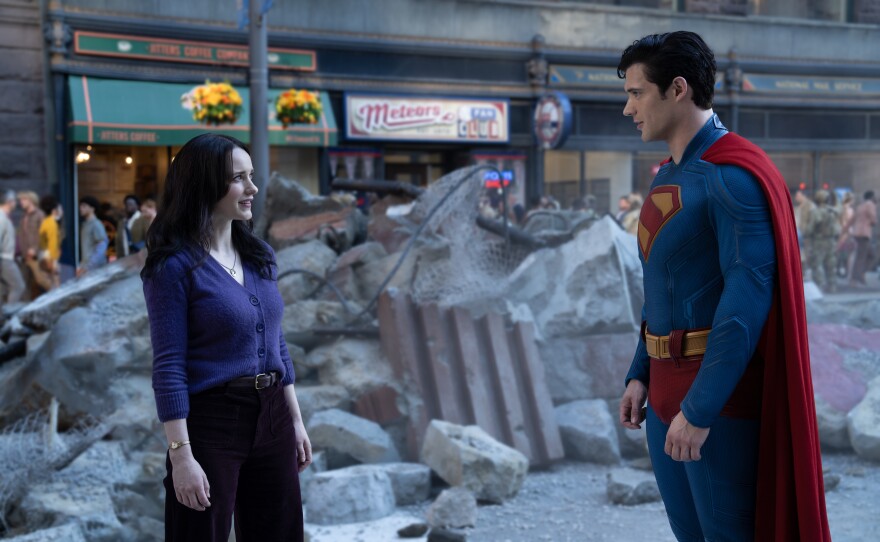
A return to Superman's roots
A jaunty set of opening titles update us quickly through 300 years of backstory and end by informing us that three minutes ago Superman (David Corenswet) just lost his first battle. The battered superhero crash lands in the Antarctic where he whistles for Krypto to come rescue him. The obedient pup comes bounding in and joyously pounces on his master (probably breaking a few more bones) before delivering him to his Fortress of Solitude to mend.
Superman does indeed mend — and quickly — so that he can return to trying to save the world amidst complicated global politics, and to fighting Lex Luthor (a menacing and evil Nicholas Hoult who is like Elon Musk but wicked smart).
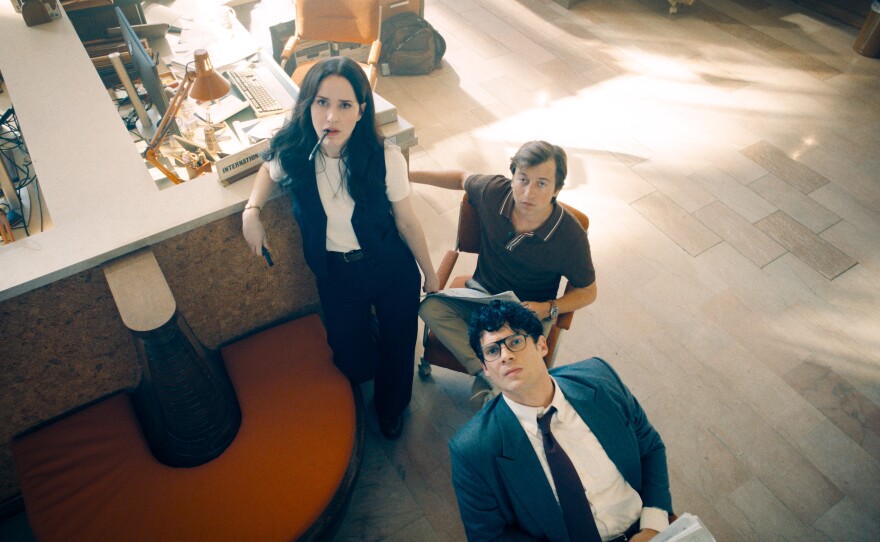
At the Daily Planet, Lois (well played by Rachel Brosnahan) and Clark feign some professional rivalry but at home they experience some very real differences. Lois tries to make Clark see the world through her more realistic or perhaps just cynical lens, while Clark defends Superman's actions as simply being motivated by a desire to save lives. But when Luthor sabotages Superman's reputation with both the government and the public (even employing an army of rage-tweeting monkeys), the superhero faces a crisis of faith.
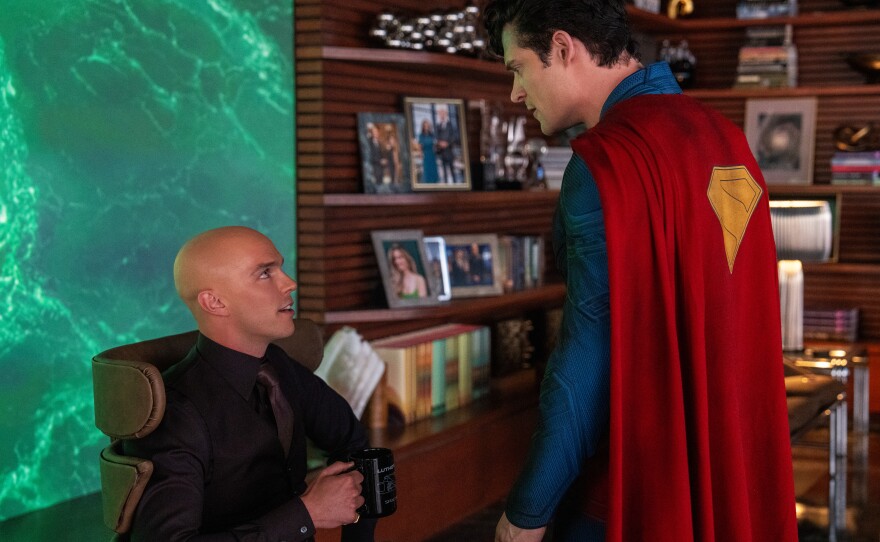
David Corenswet is the fourth actor to don Superman's cape for a DC feature film. The others being Christopher Reeve, who debuted in the role in Richard Donner's 1978 seminal film; Brandon Routh, starring in the one-off 2006 "Superman Returns;" and Henry Cavill, taking on the role in the more recent Snyder films.
Corenswet does not surpass Reeve’s beloved performance but he comes close. He captures the sincerity and the humanity of the character in a wholly winning fashion. His Superman is trying to do good on a very pure, fundamental level but that can be misread in a world where everyone seems to have an ulterior motives. Corenswet takes us on a journey with Clark/Superman, revealing his vulnerability and fallibility but emerging stronger after being tested.
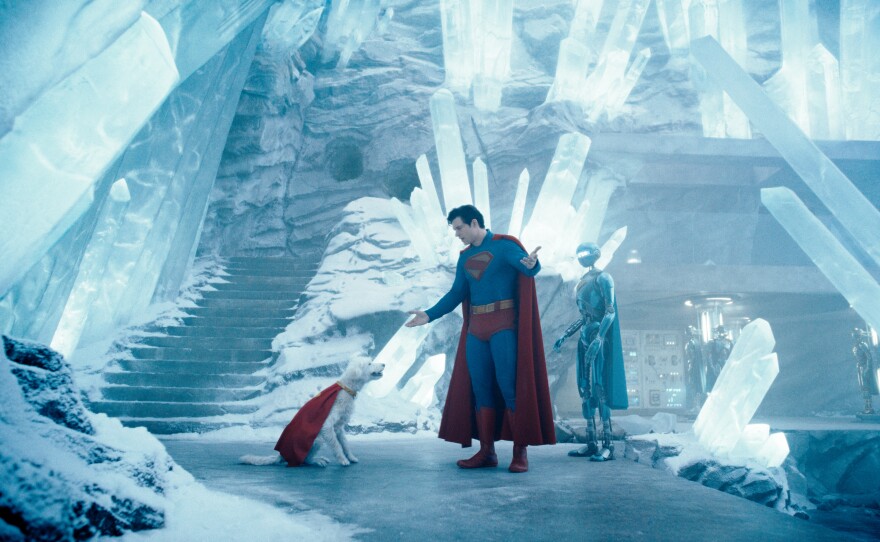
Gunn modeled Krypto on his own real life rescue dog Ozu, and his decision to include the canine superhero was a brilliant move. Having grown up with Reeve's perfect Superman (not many actor's can say "swell" and sound sweetly sincere), I was dubious of any attempts to remake or reboot the franchise. But when Gunn revealed Krypto in that first trailer ... well, he won me over. And although Krypto is all CGI, he is also 100% adorable and provides the film with some goofy charm. And I love that Gunn is not afraid to be goofy as well as serious in his film.
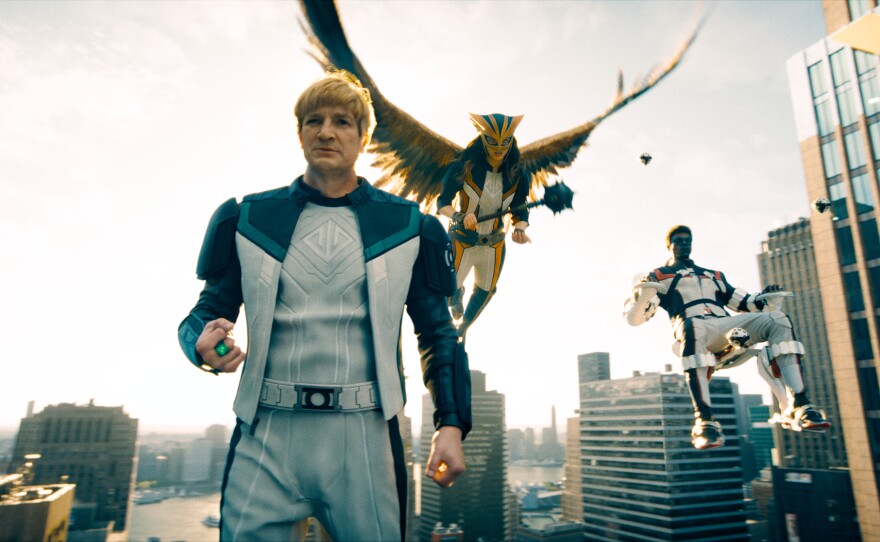
As he has done before, Gunn brings some lesser seen comic book characters to the big screen with "Superman." Nathan Fillion's Guy Gardner/Green Lantern, Isabela Merced's Hawkgirl, and Edi Gathegi's Mister Terrific make up the Justice Gang, a super trio of metahumans who step in to help Superman. Fillion is always a joy (he was in Gunn's early indie horror film "Slither") and Gathegi provides a deadpan counterpoint to Fillion's silly swagger.
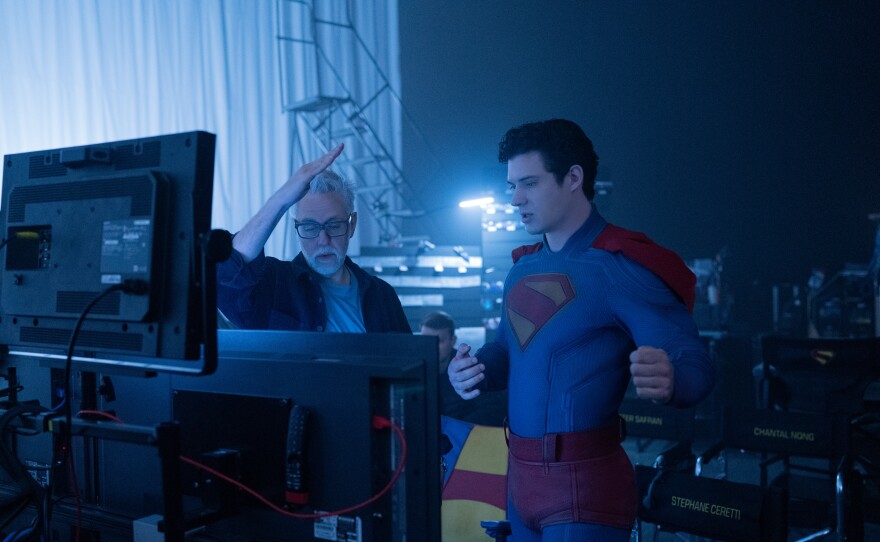
Yes, this Superman is political
Gunn is not a great stylist or visionary director. He doesn't really do world building with his superhero fantasy films. But he has a gift for creating characters that we love, and for assembling ensemble casts that click beautifully. We want to hang out with the characters he gives us and we care about them.
Gunn’s "Superman" is also political — by his own admission. But the politics are not the check the boxes type that Disney often forces on some of its products. In "Superman," you can easily read Gaza, Ukraine, Russia, ICE, Musk and Trump into aspects of the film. But the politics really stem from Superman himself, and returning him to the heroic heights of the comic books created by writer Jerry Siegel and artist Joe Shuster — Jewish men from immigrant families who had fled persecution in Eastern Europe. So the politics of Gunn's film rise organically from Superman's story of being an alien — a refugee from a dying planet — arriving on Earth and from the values the Kents (who make a truly lovely appearance in the film) instilled in him.
Here’s how Gunn described the film's themes from the red carpet at the premiere: "I think some people think of Superman as old-fashioned. Some people think he's too earnest, and I'm like, yeah, that's what we need right now. That's what I think we're all dying for, a little too earnest. I think we're dying for someone who's too kind. I think we're dying for those old-fashioned things that we love of just looking out for people in need."
At its core, Gunn’s "Superman" is about reconnecting with our humanity and acknowledging that the choices we make define who we are. The film is like a response to Musk's "The fundamental weakness of Western civilization is empathy."
There's a moment in "Superman" when a character detained in a secret pocket universe prison witnesses a shocking murder, and he can't hold back the tears as he berates himself for doing nothing. But then he does decide he has to take action; he cannot simply stand by and do nothing. That scene along with a pivotal moment of Superman declaring his humanity as his strength, are what define the politics of Gunn's film. This Superman makes mistakes but he is motivated by a sincere desire to do good, to help and to protect. It’s refreshing to see him back in this more idealistic light, and he represents values that we seem in desperate need of at this moment.
Gunn’s "Superman" is a welcome treat and provides a feeling of hope both in terms of its themes and as a film that revitalizes the sagging superhero genre. And in all honesty, Gunn had me at Krypto.





